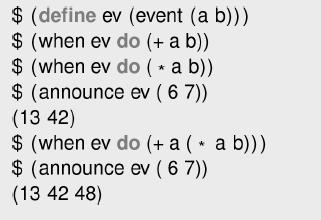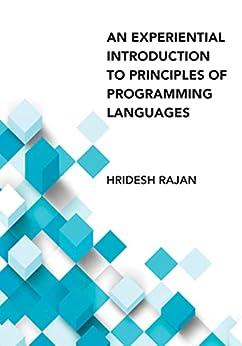The goal of this question is to learn about another variation of event-driven features by extending the
Question:
The goal of this question is to learn about another variation of event-driven features by extending the semantics of the Eventlang language. We will learn about announce expressions that return results of all observers, which is different from the announce expressions that we have been seeing so far.
The current semantics of the Eventlang language provides the result of the last dynamically registered observer as the result of the announce expression. If no observer expressions are registered, then the result is a unit value. This is why you see only one value as the result of the announce expression, even though there can be zero or more registered observer expressions.
Modify the semantics of the announce expression such that its result is a list of the values of all the observers in the order in which they ran.
Some examples illustrating this new semantics appear here:
Notice that whether you do this problem before or after question 12.5.4, the result should be the same because all observers are registered with priority 5, and so their result should appear in the order in which they are registered.
Step by Step Answer:

An Experiential Introduction To Principles Of Programming Languages
ISBN: 9780262045452
1st Edition
Authors: Hridesh Rajan





